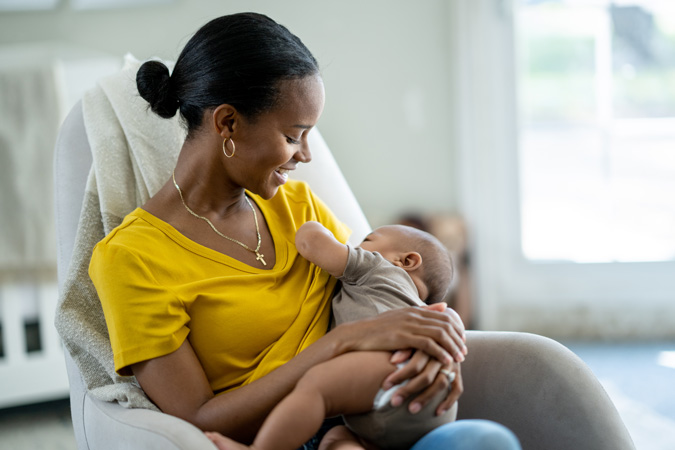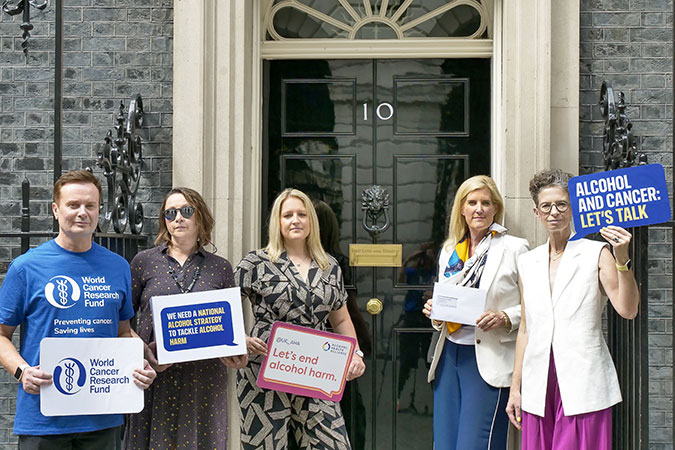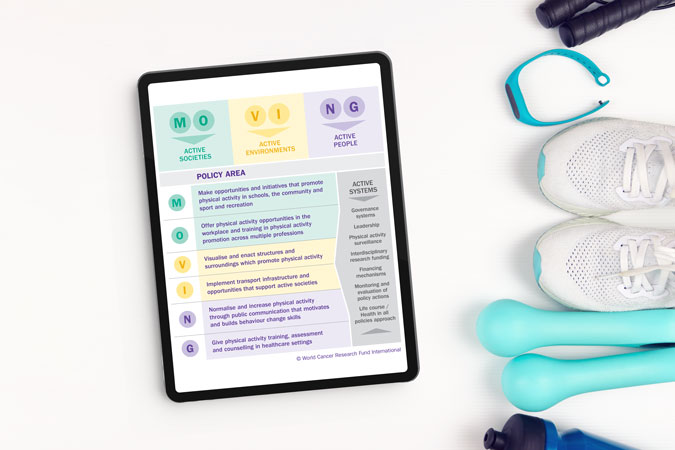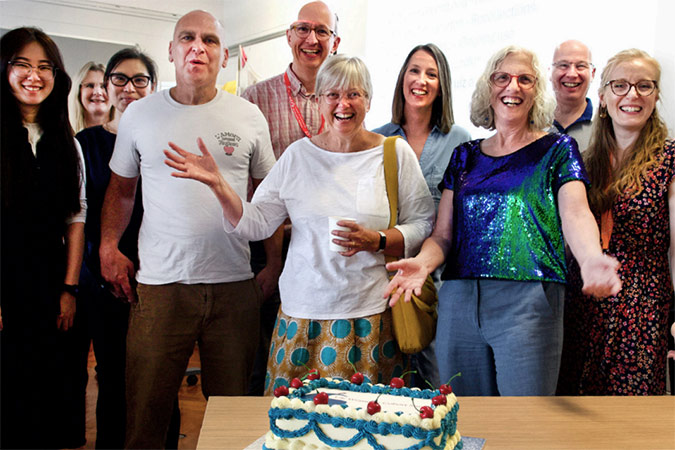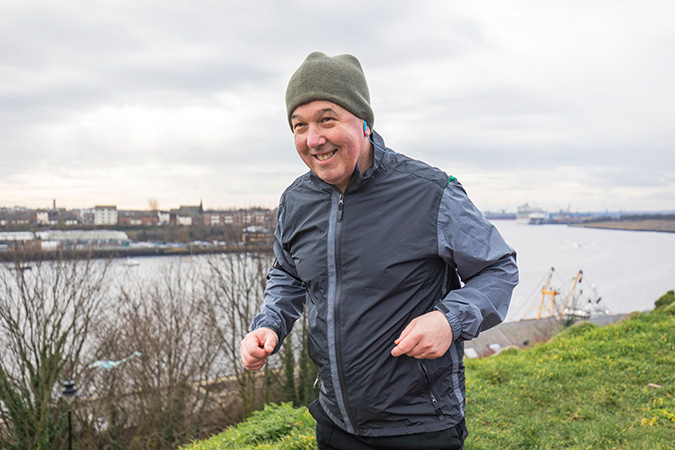What is a UN High-Level Meeting?
A UN High-Level Meeting (HLM) is convened by the UN General Assembly. World leaders meet to agree actions to address a global issue. This year, the HLM will focus on the prevention and control of non-communicable diseases (NCDs) and mental health, and will be held on 25 September. It’s the 4th meeting to focus on NCDs, after meetings in 2011, 2014 and 2018. A Political Declaration, negotiated by Member States from May to September, will guide global commitments. This year’s HLM will need to address the insufficient progress made so far, and the urgent action needed to reduce the growing burden of NCDs, and improving mental health and wellbeing.
Addressing global burden of NCDs
NCDs cause 75% of global deaths, with 40% occurring before the age of 70. Low- and middle-income countries bear the greatest burden, with 82% of premature deaths. Cancer is the 2nd most common cause of NCD-related deaths, and cases are rising sharply. Only 19 countries are on track to meet SDG 3.4 by 2030 – risking over 6 million preventable deaths by then, and 40 million by 2060.
Unfortunately, previous HLMs on NCDs have failed to garner strong policy commitments from Member States, lacking specific targets, timelines, financial commitments, or accountability mechanisms – and each successive meeting has noted insufficient progress. This September’s HLM is crucial to reclaim these missed opportunities and achieve strong commitments on the prevention and control of NCDs now, and going forward. We will make the case to Member States on why prevention should be a key priority.
Approximately 40% of cancers are preventable, especially when modifiable risk factors are addressed. Incorporating prevention into the Political Declaration is vital to the success of the HLM as it offers the most effective and affordable long-term method of NCD and cancer control.
Prevention: high-impact and cost-effective
Countries must commit to bold, strategic and measurable targets in the Political Declaration to reduce rates of cancer. Activating prevention as a high-impact and cost-effective health intervention can support a future with fewer cases of cancer and NCDs, alongside fewer costs to human lives, health systems and economies. We have 5 key recommendations to be incorporated into the Political Declaration text:
- Speed up ‘Best Buy’ policy implementation Accelerating the implementation of evidence-backed policies like the WHO Best Buys – which focus on healthy diets, alcohol consumption, smoking and physical activity – would support a positive return on investment and improvements in population health.
- Implement National Cancer Control Plans, with prevention actions and indicators Only 30% of National Cancer Control Plans include prevention actions and indicators – a hugely missed opportunity. Integrating and financing national plans that prioritise prevention would be an effective, affordable and targeted strategy to reduce cancer incidence and improve outcomes.
- Invest in NCDs and prevention measures Financial and technical contributions need to be scaled up to match the global disease burden: NCDs cause 75% of global deaths, yet receive only 2% of development assistance. Every $1 invested in cost-effective interventions like the WHO Best Buys yields at least $7 in returns through better health, employment, productivity and economic stability.
- Address health inequities Cancer disproportionately affects marginalised and lower income populations, not only from higher mortality, but also through increased exposure to risk factors like health-harming products, such as unhealthy food and alcohol.
- Protect policymaking from health-harming industry interference Member States should commit to protecting policymaking processes from the influence of health-harming industries, and not allow lobbying activities to water down commitments that prioritise and protect health over corporate profits.
Action needed on NCDs – now
Much work needs to happen between now and the HLM in September. We’re attending the Multi-stakeholder Hearing in New York this week to engage Member States and share our priorities. Our advocacy will continue through our annual participation at the 78th WHO World Health Assembly this month, as we promote the benefits of cancer prevention policy.
We’ll participate in advocacy activities and side-events, promoting our HLM policy brief, which outlines our key messages. Civil society must continue its vital role in pushing for change and shaping an impactful Political Declaration.
We’ll collaborate with our longstanding partners such as NCD Alliance, UICC, World Obesity Federation and Movendi International to support the cancer and NCD prevention policy agenda. In the lead-up to the HLM in September, we’ll continue this series doing a deeper dive into each of these policy asks, and share our reflections as progress develops.
If you would be interested in supporting these advocacy asks, please reach out to policy@wcrf.org.
- Report provides further clarity on dietary and lifestyle pattern (DLP) recommendations for breast and colorectal cancer prevention following a comprehensive review of 170 global studies
- Adopting a healthy DLP could also have important environmental and societal benefits, say report authors, and more can be done by policymakers to support adopting a healthy, cancer preventative DLP adoption globally
World Cancer Research Fund (WCRF) International has released a major new report on DLPs and their role in cancer prevention – out today (9 April 2025).
Today’s report emphasises that studying DLPs together, rather than looking at single foods or behaviours, can help researchers and the public to better understand how all these factors together play a role in reducing cancer risk.
An independent panel of experts reviewed the available global evidence on dietary and lifestyle patterns and breast and colorectal cancer. The evidence – which was judged to be strongly associated with cancer risk – was used to develop our new recommendation of a cancer preventative DLP.
What are dietary and lifestyle patterns?
Dietary patterns refer to quantities, proportions, combinations and varieties of different foods, drinks and nutrients, and the frequency with which they are consumed. DLPs refer to a combination of a certain dietary pattern with other measures such as body weight and behaviour-related risk factors including physical activity, alcohol consumption and smoking.
The insights presented in the report can support improvements in cancer prevention strategies, including policy guidance and help populations around the world to adopt healthy DLPs.
The work is part of WCRF International’s Global Cancer Update Programme – the world’s largest source of scientific research on the impact of diet, nutrition, physical activity, and body weight on cancer prevention and living with and beyond cancer.
Two research teams from the Harvard T.H. Chan School of Public Health and the Health Research Institute of the Balearic Islands used CUP Global methodology to conduct a comprehensive review of the research on colorectal and breast cancer incidence and mortality.
WCRF International worked with an expert panel who judged the evidence and made recommendations on the characteristics of a cancer-preventing DLP.
Global Cancer Update Programme collaborator and Professor of nutrition and epidemiology at the Harvard T.H. Chan School of Public Health, Prof Edward Giovannucci, said:
“The work by the Global Cancer Update Programme in reviewing and synthesising the literature on the role of dietary and lifestyle patterns in relation to colorectal cancer risk and mortality represents an immense step forward in how healthy lifestyle habits are key to prevention of cancer.
“The major advancement of this project is in the development of methods of synthesising the data on diet and lifestyle in a more holistic manner, rather than examining piecemeal specific components such as individual foods and nutrients.
“These new findings strongly support that adopting a healthy pattern of diet, maintaining a healthy weight, staying physically active, and embracing health-conscious habits, such as avoiding tobacco and moderating alcohol, are collectively associated with a lower risk of colorectal cancer.”
For colorectal cancer, the panel analysed 86 studies. Based on this evidence, they have recommended a DLP for reducing the risk of bowel cancer that includes:
- Maintaining a healthy weight and regularly taking part in physical activity
- Prioritising fruit and vegetables, as well as fibre-containing foods
- Consuming coffee and food and beverages that contain calcium such as dairy products
- Reducing the consumption of sugar sweetened beverages and alcohol
- Avoiding smoking
- Avoiding eating processed meats
For breast cancer incidence and mortality, the panel assessed 84 research publications and recommended a DLP that includes:
- Maintaining a healthy weight and regularly taking part in physical activity
- Prioritising fruit and vegetables and fibre-containing foods
- Lowering consumption of red and processed meat and sugar-sweetened beverages
- Avoiding alcohol and smoking
Global Cancer Update Programme collaborator and Lead Researcher at the Health Research Institute of the Balearic Islands and the Physiopathology of Obesity and Nutrition Networking Biomedical Research Centre, Dr Dora Romaguera, said:
“Globally, breast cancer is the most common cancer among women. We have conducted the first comprehensive synthesis of the totality of the evidence on the associations between dietary and lifestyle patterns and breast cancer risk.
“Our findings are strengthened by the robust approach to critically assessing the strength of the evidence as part of the Global Cancer Update Programme.
“This report provides clear evidence that by looking at our whole diet and the way we live, there are clear steps to recommend to women to lower their breast cancer risk. Importantly, this work highlights the greatest benefit is found when adhering to most aspects of a cancer preventative pattern simultaneously.
“By looking out our whole diet and the way we live, there are clear steps we can take to minimise our risk of breast cancer.”
In the report, the panel gave a range of recommendations on how to encourage populations around the world to adhere to healthy DLPs. These include:
- It is important that our recommendation for a cancer preventative dietary and lifestyle pattern is tailored to the region. This will only be adopted by individuals and communities and be sustainable if it is seen as culturally acceptable. Because of this, we made every effort to ensure that the constituents are not prescriptive but can be adapted to include foods available globally.
- When developing or updating food-based dietary guidelines, awareness of how the diet impacts, and is impacted by, our changing climate should be communicated.
- For further policy tools to promote our recommendations and our dietary and lifestyle pattern, please refer to WCRF International’s Policy Blueprint. This includes principles for design and implementation of policies, and how policies can be developed to address health inequalities.
World Cancer Research Fund’s Executive Director of Research and Policy Dr Giota Mitrou, said:
“This report outlines barriers and opportunities that exist, which could either prevent or help populations stick to a healthy dietary and lifestyle pattern. A cancer preventative Dietary and Lifestyle Pattern is paramount to sustaining healthy nations and and we hope will have wider benefits for the health of our planet.
“Our recommendations are applicable to all and should also be adapted to reflect specific cultural traditions and local contexts. Dietary and lifestyle changes are unlikely to be possible without wider societal policies that allow for better access to healthy foods and other health behaviours related to cancer prevention.”
Read the published papers
> Breast Cancer and Dietary and Lifestyle Patterns paper
> Colorectal cancer and dietary and lifestyle patterns paper

Sign up to hear more from us
Get the latest cancer prevention-related news and updates straight to your inbox
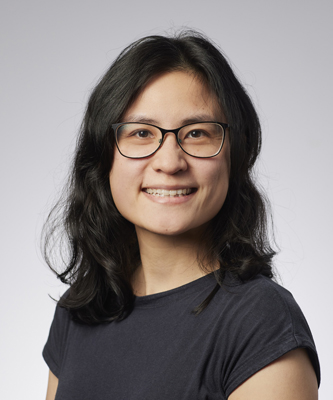 We’ve come across many examples of human rights being used to advance cancer prevention at the McCabe Centre – whether through public interest litigation by civil society in south Asia to introduce smoke-free public places, or through incorporating non-communicable disease (NCD) prevention and healthy diets into regional human rights strategies and reporting to UN human rights bodies in the Pacific.
We’ve come across many examples of human rights being used to advance cancer prevention at the McCabe Centre – whether through public interest litigation by civil society in south Asia to introduce smoke-free public places, or through incorporating non-communicable disease (NCD) prevention and healthy diets into regional human rights strategies and reporting to UN human rights bodies in the Pacific.
We were therefore pleased to see World Cancer Research Fund International’s recently launched Policy Blueprint recognise the co-benefits of cancer prevention and the fulfilment of human rights.
This blog aims to explain what these co-benefits are, and how those working in cancer prevention can make the most of them.
Cancer prevention is part of our human rights
The International Covenant on Economic, Social and Cultural Rights establishes that people have a right, and countries have a duty, to prevention, treatment and control of disease as part of the right to health. The Committee on Economic, Social and Cultural Rights, which is established under the Covenant to assist in its interpretation, outlines that in order to protect, promote and fulfil the right to health, countries need to regulate health-harming products and make preventive health services and health information available, accessible, acceptable and good quality. The UN Special Rapporteur on the Right to Health, an independent expert on human rights whose mandate is established under the UN Human Rights Council, has endorsed a number of cancer prevention measures as a means of fulfilling this right, most specifically in relation to front-of-pack food labelling and promoting and supporting breastfeeding.
Likewise, the Committee on the Rights of the Child states that children’s right to health in the Convention on the Rights of the Child includes government obligations to address childhood obesity. This includes limiting children’s exposure to fast foods that are high in fat, sugar and salt or energy dense and nutrient poor, and regulating their marketing and availability in schools and other public places.
Grounding prevention policies in human rights
In many countries, human rights law can provide a valuable framing for engagement with ministries outside of health. In Argentina, civil society organisations successfully advocated for front-of-pack food labelling in parliament using a campaign strongly grounded in human rights. This included emphasising consumers’ right to information on whether foods had levels of sugar, fat and sodium that would harm health, and the right to healthier food environments as a component of the rights to food and health.
In Norway, the WHO’s guideline on policies to protect children from the harmful impact of food marketing, which is aligned with obligations under the Convention on the Rights of the Child, has been important to the Ministry of Health’s recent announcement of its plans to ban the marketing of junk foods to children.
The Committee on the Rights of the Child has raised concerns about commercial marketing in digital environments, including the profiling of children’s personal data for targeted marketing and the use of manipulative advertising techniques. The Committee has made recommendations that have been incorporated into UNICEF/WHO tools to support Member States to address the marketing of unhealthy foods to children. These connections between the marketing of unhealthy foods to children and a broader range of problematic digital commercial practices provide an opportunity to connect cancer prevention challenges to broader issues of online privacy, digital surveillance, and the rights of children in online spaces, and build alliances on these issues.
Cancer places an unequal burden on already marginalised or under-served communities, who are also more exposed to many cancer risk factors. A human rights approach, with its emphasis on ensuring that no one is left behind, and community participation and accountability, is a way of making sure that we have an equitable response that respects, protects and fulfils the rights of each individual to health. In her report on food, nutrition, and the right to health, the UN Special Rapporteur, Tlaleng Mofokeng, describes how disadvantaged groups are targeted in food marketing, and calls for more attention to be given to the relationship between NCDs, racial discrimination and gender.
Challenging the co-option of human rights by unhealthy industries
Despite human rights bodies’ recommendations to prevent cancer and regulate third parties’ impact on health, commercial interests such as the tobacco, alcohol or food industries are often more adept and better resourced at using this body of law than cancer prevention advocates. Unhealthy industries often invoke rights in litigation against public health laws, as part of a trend to launch legal challenges under trade, investment and constitutional law as a means of blocking public health policy. In Mexico, food companies launched a constitutional challenge to front-of-pack food labelling, arguing that it discriminated against food companies and restricted their right to trade.
Courts consistently reject these arguments, recognising that the rights of commercial actors must be balanced against other societal interests, including the rights of people to health, and that it does not enhance rights if we leave the marketing of harmful products by powerful commercial entities unchecked. The Supreme Court of Mexico upheld the front-of-pack labelling law, finding that the labels furthered the right to health and did not present a barrier to commerce. These challenges demonstrate the importance of proactively engaging with human rights and the law as part of a broader strategy on cancer prevention, so that lawyers representing commercial entities are less able to co-opt human rights to block public health policy.
A need for strategic alliances
Human rights are ultimately allies in implementing evidence-based laws to fulfil people’s right to health, with legal principles that emphasise equity, the right of consumers to be informed, and government obligations to regulate commercial actors that may harm human rights all fitting in well with public health objectives. Recalling these principles and building strategic alliances with human rights groups means we can better realise the potential of cancer prevention policies to promote and fulfil human rights for all.
The author would like to acknowledge Hayley Jones and Clare Slattery for comments on an earlier draft of this article.

Get the latest policy news first
Sign up to receive our monthly digest of nutrition and physical activity-related policy developments
In almost every region of the world, overweight and obesity among children and adolescents is a public health problem. There has been no progress in stemming the rate of overweight and obesity in children under 5 years in nearly 20 years, according to the World Health Organization (WHO).
This is a problem, because we know that when people live with overweight or obesity near the start of their lives, it often becomes a challenge throughout their adult lives.
What’s the problem with being inactive?
Young people may not be thinking very much about their risk of developing cancer. But the habits laid down in youth can last a lifetime. Our evidence shows that being active reduces the risk of colon (part of the bowel), post-menopausal breast and womb cancers.
Perhaps more importantly, being physically active also helps reduce our risk of living with overweight and obesity – a cause of at least 13 different types of cancer. Put simply, excess weight results from an imbalance between the energy we take in through our diet, and the energy we expend through being active (and other bodily functions). While we need to consider wider issues related to our ability to access a healthy diet, and managing stress and sleep levels, part of the solution involves being more active.
Are screens a particular problem?
Screens, and particularly mobile phones, have been blamed for a range of social and health problems among young people, including:
Evidence from our 2018 Diet and Cancer Report revealed convincing evidence that more screen time for children (from mobile phones but also using computers at school and watching devices during leisure time) makes weight gain more likely, as well as overweight and obesity.
The reasons for this are mixed. We tend to watch screens while sitting down, which uses less energy. Watching screens can also encourage us to eat more than is needed, not least because of exposure to adverts for unhealthy food and drinks, which young people may be particularly susceptible to.
The WHO lists limiting screen time as one of the ways to prevent and manage overweight and obesity in young people – but it’s only one.
What are the barriers to getting more active?
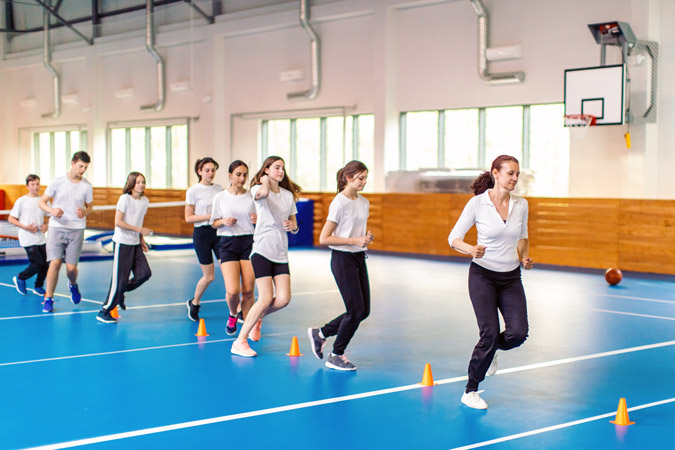
Young people’s experiences differ but, looking at the evidence and talking to parents and teenagers in the UK, a few common problems are highlighted:
- Underfunded / poor-quality equipment in public spaces (that may also feel unsafe to use).
- Cost – young people often don’t have a steady income, and gyms/clubs/sports can be expensive. Young people need access to parks and sports fields in their neighbourhoods.
- Travel – young people are often dependent on others for travel, which makes active travel – including safe routes to walk or cycle to school – and good public transport infrastructure so important (see below).
- Lack of options – children and young people in the UK are often offered activities such as football, netball and cross-country, but many want to try out less conventional sports such as yoga, dodgeball or trampolining.
- Gender – there is a significant decline in young girls taking part in sport, and parents of girls highlighted particular barriers to participation around body image, concerns about sweating and clothing, and lack of private changing spaces.
Elsewhere, a 2022 study looking at Botswana, Ethiopia, South Africa and Zimbabwe identified barriers around funding, but also highlighted community safety and a general lack of infrastructure as challenges.
What solutions are working around the world?
When developing ideas and designing policies to tackle overweight and obesity among children and young people, one voice is often unheard – that of young people themselves. From 2018–23, World Cancer Research Fund was involved in an innovative EU-funded project called CO-CREATE, which aimed to change that by putting young people at the forefront of tackling the obesity epidemic in Europe. The youth representatives on the project came up with 4 demands to policymakers, including “Offer all children and adolescents free, organized physical activities at least once every week.”
Using what they learned as part of the CO-CREATE project, our Policy team have devised a policy factsheet on physical activity, outlining the best ways to meet our Cancer Prevention Recommendation to be physically active.
Of all the information in the factsheet, some policy recommendations would specifically benefit children and young people, if acted on by governments around the world. These include:
- Initiatives that optimise opportunities for physical activity (including walking and cycling to and from school).
- Active play before and after school, as well as during recess and lunch breaks.
- Reduce sitting during classes.
- Policies to priorities active urban design, like ensuring access to open/green space or walking and cycling infrastructure where people live.
To keep people informed about both the need to be active, and the opportunities available to them, we also recommend:
- High quality physical education in school curricula.
- Enhanced physical activity training for all teachers.
And some of these innovative policies are already being undertaken in parts of the world. There are many policies recorded in our MOVING database mandating physical activity in schools, broadly ranging from 2–4 hours per week, depending on age and country.
And it’s not just dedicated PE sessions. Italy’s Scuola attiva kids aims to promote a culture of wellbeing and movement among not only students but teachers and families as well. In Finland, the Students on the Move programme encourages young people to sit less and move between breaks. Belgium’s Adventurous Activity initiative offers young people the chance to try out high and low ropes, tree climbing, rowing, BMX, skiing and orienteering.
Yet parents we spoke to suggested that there also needs to be a reframing of how PE is seen in school. One parent in Surrey, UK, said: “If you’re really good, you tend to do loads as part of a club, but there seems to be very little for those who aren’t any good.”
“There’s different aspects of sports. There’s one where you’re trying to create lifelong fitness for young people to engage in sport as part of a healthy lifestyle. And there’s another part where you need competitive sport to provide appropriate challenge” – Jennifer Cole, teacher and parent of 3, Brunei
“Emphasise fun so everyone can join in. Let people compete and win something but focus on beating personal bests rather than being top of the class so it’s not exclusive. Why not offer points or vouchers for those who increase their steps the most, not the ones with the overall highest numbers, so you’re encouraging people who don’t do anything?” – Mike, parent of 3 including 2 teenage girls, UK
Active travel was another key concern for parents – and is also one of our policy recommendations, including:
- Transport policies, systems and infrastructure that prioritise walking, cycling and use of public transport.
- Road safety actions for pedestrians and cyclists.
Active travel, which has the additional benefit of helping countries meet climate commitments, is already being promoted in many European countries. Austria’s Kindergarten Mobility Box aims to make walking and cycling the norm from a young age, and Belgium has similar scheme.
Perhaps, rather than just focusing on crisis-driven solutions to an increasingly inactive world, we need to listen more to young people about the changes they want to see in their world, alongside implementing policies that make it easier for everyone – especially young people – to move more and sit less as part of their everyday lives.
Want to get more active?
Check out our resources to help you get moving – written by experts
National Cancer Control Plans (NCCPs) are overarching strategic frameworks developed by governments to establish priorities for cancer, including:
- Prevention
- Diagnosis
- Treatment
- Survivorship
- Palliative care
Crucially, their potential to drive meaningful improvements in cancer outcomes has been proven.
Prevention is a glaring omission
The International Cancer Control Partnership’s most recent global review of NCCPs found that only 30% of all cancer plans address prevention. This is a glaring omission, especially given that the cancer burden is already unsustainable – placing increasing pressure on over-stretched health systems and economies. Nearly half (40%) of all cancer cases are preventable by addressing modifiable risk factors including diet, weight, activity, alcohol, smoking and sun exposures, underscoring the fact that prevention is the sustainable way forward.
World Cancer Research Fund are on a mission to wave the flag for primary prevention. First off, Rachael Gormley, acting president of World Cancer Research Fund International, took part in a roundtable event about NCCPs at the recent World Economic Forum in Davos, Switzerland. Rachael took full advantage of this important platform to emphasise why prevention must be central to all cancer strategies.
We also welcomed the UK government’s call for evidence on the National Cancer Plan for England. Our primary goal is to ensure that the new plan places prevention and survivorship at its heart. We’ll be sharing our written submission in due course and look forward to collaborating with organisations across sectors to amplify our calls.
Plans can be force for positive change
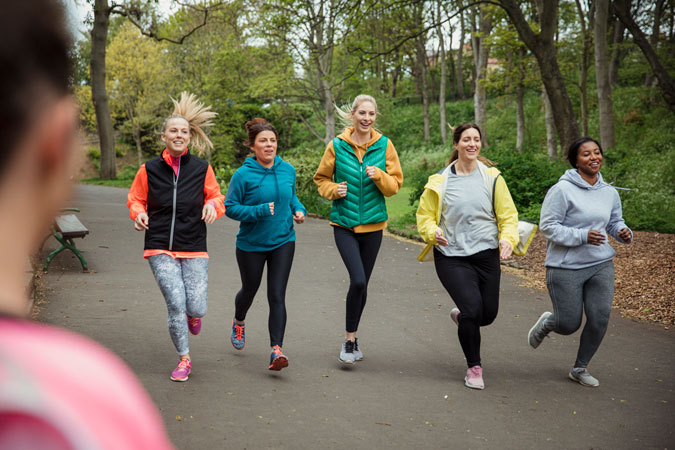
The International Cancer Benchmarking Partnership has examined the relationship between cancer policies and survival rates. It found significant potential for NCCPs to improve cancer diagnosis, treatment, and outcomes when applied strategically and successively.
Countries that adopt this approach have experienced the greatest improvements in cancer survival. For example, Denmark, which implemented 4 consecutive plans between 2000 and 2020, has significantly improved the survival rates for multiple cancers, including an 19% increase in the 1-year survival rate for lung cancer over 15 years.
Prevention is crucial to the success of NCCPs as it offers the most effective and affordable long-term method of cancer control. Prevention policies range from interventions aimed at reducing risk factors, such as helping smokers quit, and policies to reduce overweight and obesity, to actions that tackle cancer-causing infections, such as human papilloma virus vaccination programmes.
While NCCPs are not a silver bullet, they present a unique opportunity to implement targeted, context-specific actions on a national scale. This is particularly important for prevention, where wide-ranging strategies can benefit from the streamlined and coordinated structure of NCCPs, which can set out a roadmap of action across the entire prevention continuum.
Bottom line is rising cancer burden
The growing global cancer burden is why NCCPs focused on prevention are needed.
The WHO estimates that nearly 1 in 6 deaths globally are caused by cancer each year, meaning that annually around 10 million people lose their lives to cancer. The latest statistics on global cancer rates also show that in 2022, there were 20 million new cancer diagnoses, and 53.5 million people living with or beyond cancer.
The enormity of these figures can make it difficult to remember that they represent real people who have had their lives turned upside down by cancer.
It isn’t only the human cost of cancer that is immense. The social and economic costs are also undeniable, making it particularly concerning that globally new cases are expected to skyrocket to 35 million annually by 2050. This increase will be felt most acutely in low- and middle-income countries, which are expected to experience a more rapid rise in cancer rates in the coming decades.
Fortunately, this worrying trajectory is not inevitable. A focus on cancer prevention in NCCPs would allow millions more people to live cancer free. It is also the most cost-effective way to tackle cancer and, crucially, reduces the need for expensive later stage treatments that are often inaccessible to many. In addition, it could lead to an array of co-benefits such as the prevention of other non-communicable diseases and a reduction in health inequalities.
While this shift to prevention requires systemic change coupled with sustained investment, the challenge is not insurmountable. Ultimately investment in prevention will have the highest pay off for governments and the good news is that we already know the integrated policy approach needed to make this a reality.
NCCPs are a meaningful tool to prevent cancer and improve survivorship, support health systems, and promote economic growth. We will continue making the case for prevention to ensure that NCCPs fulfil their potential to reduce the cancer burden. Alongside working to ensure the National Cancer Plan for England prioritises prevention, we will be calling for all countries to develop NCCPs that include meaningful prevention measures at the UN High-Level Meeting on non-communicable diseases in September.
The UK’s National Day of Reflection takes place on 9 March 2025, as an opportunity to come together to remember those who died as a result of the COVID-19 pandemic, and to honour the tireless work and acts of kindness shown during this unprecedented time.
World Cancer Research Fund are proud to be involved in this day and extend it into an opportunity to remember all of those we love who have died. We know many of our fantastic supporters welcome our innovative and groundbreaking work in memory of someone special.
Remembering Mary Towsey
 Mary’s family kindly shared this tribute to her, as a supporter of World Cancer Research Fund.
Mary’s family kindly shared this tribute to her, as a supporter of World Cancer Research Fund.
Born in Epsom on 24 July 1936 to Freda and Norman Prideaux, Mary grew up in a loving household with her younger sisters, Jane and Jill. After the war, they all settled into what was to become a bustling, lively, family home in Hampshire filled with grandparents, friends, dogs, cats, geese, heifers, chickens and, most importantly, love and laughter.
Her favourite expression was “Find a way, make a way”. She could make something from nothing, whether an impromptu meal or a beautiful and cosy room in her house. She often saw beauty where others didn’t, and had a gift for showing others the world through her eyes.
Mary started her own very successful art school in Cobham, Surrey, where she would share her skill and knowledge with many aspiring artists. As was so typical of her, she often said she learned as much from her students as they did from her.
 When she finally retired from teaching and moved to a smaller house, Mary continued to paint, having made a small studio in her attic, and she continued to socialise with her many friends. Still being full of energy and wanting to do more, she started going to a Pilates class for the more mature woman. There she met a lovely group of women with whom she spent most of her time laughing.
When she finally retired from teaching and moved to a smaller house, Mary continued to paint, having made a small studio in her attic, and she continued to socialise with her many friends. Still being full of energy and wanting to do more, she started going to a Pilates class for the more mature woman. There she met a lovely group of women with whom she spent most of her time laughing.
In her quiet moments, Mary would enjoy sitting in her conservatory, drinking coffee while watching the birds feast from the bird table. Mary was an active person, filled with energy who kept gardening and painting until the end of her life.
 World Cancer Research Fund is humbled to receive gifts in memory of special people, like Mary.
World Cancer Research Fund is humbled to receive gifts in memory of special people, like Mary.
We have a tailored in memory programme where we supply forget me not seeds in the spring, and memorial baubles at Christmas, as well as online ways to share your loved one’s life. Visit Give in memory for more information.
Would you like to share your loved one’s story? We’d love to hear from you. Please telephone our in memory team on 020 7343 4293 or e-mail tributes@wcrf.org.
The term “plant-based diets” has become popular in recent years. These types of diets, which are traditional for some parts of the world (eg in Asia and the Mediterranean region), are rich in vegetables and fruits, plant oils (mainly olive oil), and fish, but consumption of meat and dairy products is traditionally low. Numerous studies have shown that these types of diets are beneficial for human health.
On the other hand, diets of affluent western societies have changed significantly during the past 60 years towards a diet that is rich in meat, refined carbohydrates, sugar, and saturated fats. This type of diet is not only associated with a higher risk of chronic diseases such as cardiovascular diseases, diabetes and several types of cancer, but it also has a strong impact on our planet’s climate.
Production of animal products such as meat and dairy needs more energy than the production of plant products, hence, by reducing our consumption of animal products, we can save significant amounts of energy. For example, in Switzerland, about 30% of environmental impacts are due to food production, transportation and consumption (PDF).
An international group of nutrition scientists has proposed a diet that meets most nutrition requirements, while simultaneously taking sustainability and planetary health into account. This diet is often called the “EAT-Lancet Reference Diet” or “Planetary Health Diet”. It’s mainly plant-based, meaning that carbohydrates come from whole grains, proteins are mainly from legumes (such as beans, lentils, peas, but also soy food and peanuts), and fats are mostly unsaturated plant oils. Animal products are not forbidden, but their consumption is recommended to be limited.
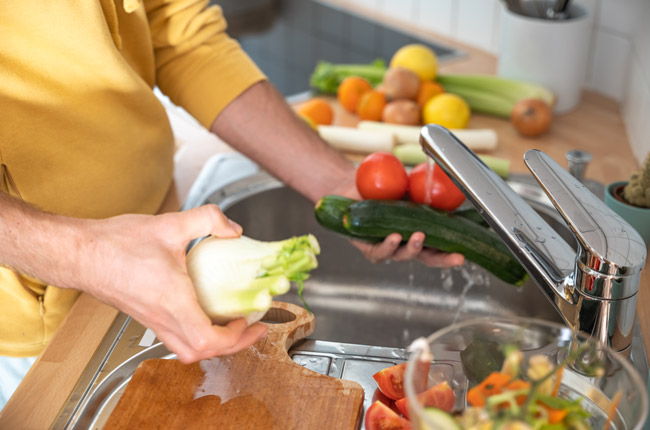
Our research group at the University of Zurich, in collaboration with colleagues from other universities, was interested as to whether this type of diet, which is thought to reduce the damaging impact of food on our environment, also has beneficial effects on our health, particularly regarding the risk of cancer.
To try to answer our question, we needed a dataset in which the food consumption of the participants was assessed, but in which participants were also followed up for a number of years so that we could know how many of them were diagnosed with cancer. The UK Biobank is a large cohort in the UK that includes more than half a million people. Using data from this large cohort, we have examined how closely people were following the recommendations of the EAT-Lancet Reference Diet in 2005–07, and how many of them had been diagnosed with cancer until 2019.
Sustainability lowers cancer risk, too
When we compared those participants whose diet was closest to the EAT-Lancet Reference Diet with those who ate a less sustainable diet, we saw that an environmentally friendly diet was indeed associated with a lower risk of cancer. Better adherence was linked to a 10% lower cancer risk. However, we did not see a particularly strong protective effect for a specific type of cancer.
The results of our study are consistent with those of other groups trying to answer the same research question using different data sets. Another paper we have recently published adds to the evidence, suggesting that continually following the EAT-Lancet Reference Diet over time is linked to a lower risk of all-cause mortality and cancer risk. This strengthens our conclusions that a planet-healthy, plant-based diet can promote health.
In fact, plants are excellent sources of most of the essential vitamins and minerals in our diet. When a plant-based diet is balanced, products of animal origin are only needed in moderation to provide us with the few essential vitamins that cannot be found in plant sources (eg vitamin B12).
Greater focus should be given to exploring different plant-based foods, as well as on how to prepare plant foods – in particular legumes – so that more people are able to cook and enjoy these types of foods. Consumers, researchers and cooks need to team up to develop climate-friendly recipes. In Switzerland, we have published the first cookbook that only contains climate-friendly recipes. And recently World Cancer Research Fund developed Budget-friendly recipes: Good for you, good for the planet.
- Dr Nena Karavasiloglou, a researcher, was formerly a Postdoc at the University of Zurich. Prof Sabine Rohrmann is at the University of Zurich. Read more about their grant funded by World Cancer Research Fund, including papers published from this grant.

Budget-friendly recipes
Get your free copy of our cookbook – good for you, good for the planet!
Siobhan McGeown
Siobhan was inspired to run by her parents (in main picture), who have both had cancer. She says: “After watching both my parents suffer from cancer (ovarian and prostate), as well as several other close family members, I want nothing more than to see better outcomes for cancer diagnoses, as well as better detection and testing before it gets to that stage.”
Angela Brooks (left, wearing cap)
 Angela was diagnosed with breast cancer in 2021 aged only 33. She’s currently in remission but still living with the impact of cancer, including early menopause. Angela told us about her training schedule: “Every 3 weeks, between rounds of chemotherapy, I set myself the goal of completing a 10k run.”
Angela was diagnosed with breast cancer in 2021 aged only 33. She’s currently in remission but still living with the impact of cancer, including early menopause. Angela told us about her training schedule: “Every 3 weeks, between rounds of chemotherapy, I set myself the goal of completing a 10k run.”
Sam Burton
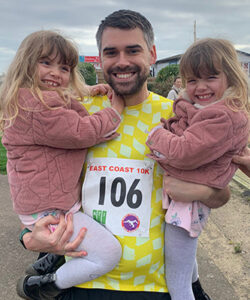 Sam says: “The decision to run for World Cancer Research Fund is driven by my Father’s recent diagnosis with kidney cancer, an event that has reshaped my perspective on life and illuminated the critical importance of cancer research and advocacy.”
Sam says: “The decision to run for World Cancer Research Fund is driven by my Father’s recent diagnosis with kidney cancer, an event that has reshaped my perspective on life and illuminated the critical importance of cancer research and advocacy.”
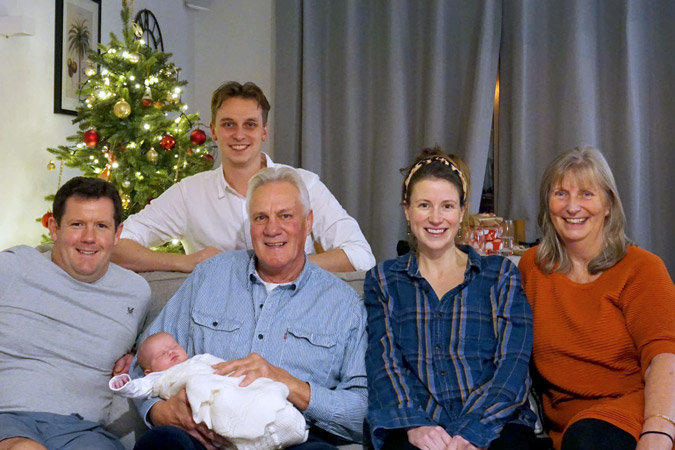
Jack Gibbons and family
Jack Gibbons
 This is Jack’s second marathon for us, having also run in 2018. He’s running in memory of his mum, Maggie, who received a diagnosis of very aggressive stage IV melanoma in late 2023 and passed away in January 2024.
This is Jack’s second marathon for us, having also run in 2018. He’s running in memory of his mum, Maggie, who received a diagnosis of very aggressive stage IV melanoma in late 2023 and passed away in January 2024.
Maggie was there to support Jack when he ran his first marathon and was there at the finish line of the London Landmarks half in 2023 to see him over the line. Her support meant the world to Jack and he’s proud to be able to run for her in 2025 and raise money for World Cancer Research Fund.
David Herlihy
 David sadly lost his Dad to cancer in April 2024, and his Mum has been diagnosed with cancer for the second time in 5 years. He’s dedicated to health and fitness, and has completed 5 marathons, an ironman and 2 ultra marathons.
David sadly lost his Dad to cancer in April 2024, and his Mum has been diagnosed with cancer for the second time in 5 years. He’s dedicated to health and fitness, and has completed 5 marathons, an ironman and 2 ultra marathons.
Hannah Stedman
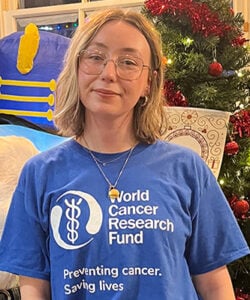 Hannah is running in memory of her amazing Mum, who “had a very quick battle with lung cancer in October 2023. She was diagnosed on the 3rd and had passed by the 24th. To say this experience was the hardest thing of my life is an understatement.”
Hannah is running in memory of her amazing Mum, who “had a very quick battle with lung cancer in October 2023. She was diagnosed on the 3rd and had passed by the 24th. To say this experience was the hardest thing of my life is an understatement.”
George White
 George is a mortgage broker based in the West Midlands and is motivated to run for us after recently losing his Godfather to cancer.
George is a mortgage broker based in the West Midlands and is motivated to run for us after recently losing his Godfather to cancer.
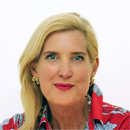 Obesity is a public health emergency with England having one the highest rates among high-income nations.
Obesity is a public health emergency with England having one the highest rates among high-income nations.
There are stark inequalities in this country across the ages, geographic areas, genders, ethnic groups and for those with both mental and physical disabilities.
And these inequalities are growing, as rates of children with obesity are increasing significantly faster in communities with high deprivation levels compared to those with low deprivation levels.
And yet when the UK government has the chance to make a difference it is missing the mark.
They recently responded to the House of Lords Committee report entitled Recipe for Health, which set out realistic and transformative recommendations to improve the nation’s diet.
But we were disappointed to see their tepid response with the UK government listing their existing commitments rather than giving a clear signal that they would adopt any of the report’s recommendations.
This raises serious concerns about whether their upcoming National Food Strategy will turn out half-baked.
At World Cancer Research Fund, we want to see bold government policies in cancer prevention and nutrition.
This includes mandatory targets to improve nutritional quality of food, an expansion of the Soft Drinks Industry Levy to unhealthy foods as well as a strengthening of its sugar threshold, and the introduction of a mandatory front-of-pack labelling scheme.
The government must also ensure that the upcoming marketing restrictions on unhealthy foods are enforced without delay.
There is no doubt that the government wants to put prevention policies at the heart of what they do – they set it out clearly in their manifesto.
But with around 40% of cancer cases being preventable, they need to go further and faster on improving the nation’s diet – they need to take up the recommendations in the Recipe for Health report.
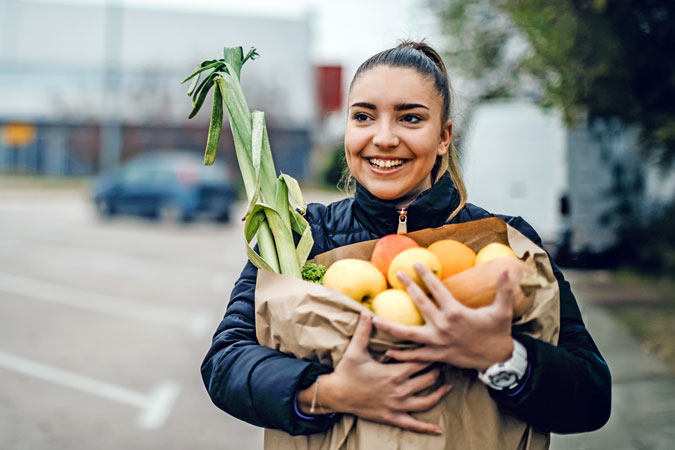
Our Cancer Prevention Recommendations
Experts now believe that up to 40% of cancer cases are preventable. These are a blueprint for how to reduce your risk of cancer
At an event to mark World Cancer Day, the Health and Social Care Secretary, Wes Streeting, announced the development of a National Cancer Plan for England.
He also launched of a new, world-leading trial that is testing AI tools to diagnose breast cancer cases earlier. More than 700,000 women are expected to take part.
Breast cancer is the most common type of cancer in women, with more than 59,000 people being diagnosed in the UK in 2021.
Alongside this, Streeting announced a new initiative called the UK Collaborative for Cancer Clinical Trial Research, which will help to maximise opportunities for the UK to lead in clinical research.
It is being hosted by the Association of Medical Research Charities, of which World Cancer Research Fund is a member.
Responding to the launch of the Government’s consultation on the National Cancer Plan for England, World Cancer Research Fund’s Executive Director of Research and Policy Dr Giota Mitrou, said:
“Around 40% of cancer cases can be prevented by making our lives and the environment we live in healthier.
“We therefore warmly welcome the UK Government’s consultation on the National Cancer Plan for England and commitment to publishing the Plan this year. Marking a pivotal opportunity to shift the dial from sickness to prevention, the Government must ensure the Plan is truly transformative and achieves a step change in cancer prevention so that more people can live free of cancer.
“The launch of a new UK Collaborative for Cancer Clinical Research also provides a welcome focus to maximise opportunities for cancer research. As a member of the Association for Medical Research Charities leading this work, we stand ready to share our expertise on research in cancer prevention and survivorship.
“Overall, the Government’s announcement is a huge step in the right direction. We look forward to working with the Health Secretary and others to make the Plan a reality.”

Get the latest news to your inbox
Sign up to hear the latest health advice, recipes, cancer research and much more
Despite the advances in cancer research over the past 40 years, including World Cancer Research Fund’s evidence on cancer prevention, and dramatic advances in cancer treatment, one question remains to be answered: why does one person get cancer when another, who lives a similar lifestyle, does not?
Experts estimate that up to 40% of cancer cases are preventable, if people didn’t smoke, avoided the sun, avoided alcohol, ate a healthy diet, maintained a healthy body weight and stayed physically active. But that doesn’t mean we can reduce our own risk of cancer by 40% if we follow this advice. It’s not easy to estimate an individual’s cancer risk because so many biological and genetic factors are also at play.
And that’s where large databases about our health can make a big difference. One of these is the UK Biobank, which contains details about the health – and increasingly, as the participants get older, the ill-health, of 500,000 people in the UK. The longevity of this data – not just at one point in a person’s life but repeatedly measured over a long period of time – helps us understand what influences cancer risk throughout someone’s life.
Heel bone density to house size
Since 2006, the UK Biobank has been collecting environmental, lifestyle and genetic information about the participants. For scientists, the size, range of information – from heel bone density to blood pressure to the size of their house – and duration of information collected is a gold mine.
It has been described as “the world’s most important health database” yet it’s not the only resource of this type. Another large database established as part of the European Prospective Investigation into Cancer and Nutrition (EPIC) study has grown into a massive project involving 10 countries, with 521,000 participants and data collected over more than 30 years.
Of the 30,000 registered researchers from 100 countries who have used data from the UK Biobank, some are funded by the World Cancer Research Fund network, and are using the data to investigate a range of cancer risk factors:
- Sleep, sleep patterns, and risk of prostate and endometrial cancer
- Fat tissue and advanced prostate cancer risk
- Social inequality and cancer risk
- Physical activity, sedentary behaviours, and cancer, cardiovascular disease and diabetes
- Plant-based diets
- Ultra-processed food
- Following our Cancer Prevention Recommendations
- Obesity and insulin
- Vegetarian diets
- Links between diabetes and cancer
- How many cancers are linked to obesity and physical activity?
Some of the things our scientists have found out using UK Biobank data include:
- Physical activity across the day – with a peak early in the morning and late in the evening – linked to lower risk of colorectal cancer
- Ultra-processed food increases cancer risk
- Following our Cancer Prevention Recommendations reduces the risk of all cancers
The UK Biobank allows researchers around the world to look at biological and medical data and “supports a diverse range of research intended to improve the prevention, diagnosis and treatment of illness, and the promotion of health throughout society”.
And it’s not easy to get hold of such large amounts of data. It’s hard to get half a million people to consent to sharing their personal data in this way, and even harder to get them to keep filling in surveys and undergoing procedures over many years. This type of research can only be done with people’s support and willingness to consent, and without it, finding ways to prevent and treat diseases such as cancer will be so much harder.
The wealth of data the UK Biobank contains could have drastic implications for cancer research, perhaps even finally helping realise World Cancer Research Fund’s ambition of living in a world where no one dies of a preventable cancer.
What do our grant holders say about UK Biobank?
Prof John Mathers
The scale, rich detail of participant characteristics and behaviours, and robust long-term information on health outcomes make UK Biobank a world-leading resource for studies of many aspects of nutrition and health including cancer risk and survival.
Dr Emma Allott
Whole body imaging data available in UK Biobank has enabled our team to measure the amount of fat surrounding the prostate in a large number of cancer-free men. These men are followed over time by the UK Biobank, giving us the opportunity to explore how the quantity of this fat type is related to future risk of prostate cancer. Studies like UK Biobank are critical for this type of research as the imaging required to measure this fat type is not otherwise available in healthy individuals. The results of our study will provide the first evidence for or against periprostatic fat as a risk factor for aggressive prostate cancer.
Dr Dagfinn Aune
We are using the UK Biobank to study the association between adiposity and physical activity and cancer risk. The very large sample size and the detailed assessment of adiposity measures, physical activity, other risk factors and a range of biomarkers are of major importance for our analyses. All this information helps us study associations with a range of cancer outcomes as well as exploring potential biological mechanisms that may explain or contribute to cancer development.
Dr Fiona Malcomson
Our studies using UK Biobank data have shown that people who adhere more closely to the WCRF/ AICR Cancer Prevention Recommendations have lower risk of developing cancer and, specifically, lower risk of cancer of the breast, bowel, kidney, oesophagus, ovary, liver and gallbladder. UK Biobank data has also enabled us to identify lifestyle and dietary patterns according to sociodemographic factors that will help guide public health strategies for cancer prevention.
The International Agency for Research on Cancer estimates that, by 2050, the world will see 35 million new cancer cases each year, up by 15 million annual cases in 2022. Yet with the right policies to prevent cancer, 14 million of those people could avoid their diagnosis. These policies would need to address a variety of factors, including tobacco, alcohol, overweight and obesity, breastfeeding and unhealthy diet.
Cancer places increasing burden on society
As the cancer burden increases, the strain on our health systems, economies and families becomes harder to meet. Unhealthy weight – just one risk factor – is projected to cost the global economy more than $4 trillion a year by 2035. Our food systems make eating a healthier diet harder. High production and consumption of red and processed meat, and low consumption of wholegrains, vegetables, fruit and beans, plays a role in increased cancer risk and the risk of other diseases such as diabetes. This misalignment also contributes to unhealthy natural environments, as diet-related greenhouse gas emissions are significant contributors to global warming. Most of these are related to production of animal-based foods. This is why prevention is the only sustainable way forward – with resilient populations and food systems working together for public health.
Prevention the sustainable way forward
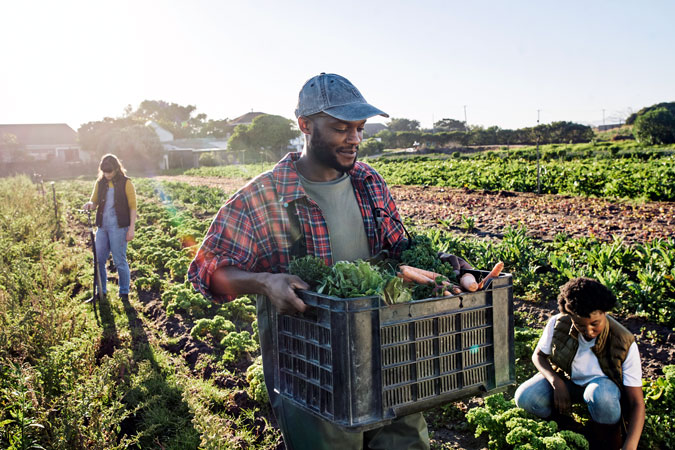 We believe that prevention must be prioritised and is the only sustainable way forward. We also need to better explain:
We believe that prevention must be prioritised and is the only sustainable way forward. We also need to better explain:
- The science around cancer risk and diets, weight, breastfeeding, physical activity, and alcohol – as summarised in our Cancer Prevention Recommendations.
- Which policies should be prioritised to shape healthier environments that minimise these cancer risks for populations.
- How cancer prevention policy can have positive cascading effects for our health, but also for our health systems, our societies and our shared natural environment.
Cancer prevention policies can have ripple effect
We also know that cancer prevention policies can touch on and improve other areas beyond health. For example, diets high in red and processed meat increase people’s risk of colorectal cancer, and that healthier diets made up of more wholegrains, fruit and vegetables can protect people from the same type of cancer. This is why our Cancer Prevention Recommendations say people should limit red and processed meat, and eat a diet rich in wholegrains, vegetables, fruit and beansAt the same time, if our food systems produced less red and processed meat, and animal- food in general, and instead moved towards producing plant-based foods, this would have a significant impact in lowering diet-related CO2 emissions. Policymakers need to make sense of these connections, and our guidance shows what they need to do to promote such positive cycles – or co-benefits.
Why we created the Blueprint
Our well-established Cancer Prevention Recommendations cover 10 ways in which individuals can minimise their risk of preventable cancers. A growing body of evidence is showing that adherence to these Recommendations is associated with lower risk of developing cancer and other NCDs, but also lower risk of dying from cancer.
However, the Recommendations have not – until now – been presented alongside population-level policy advice. We need to promote an integrated approach to preventing cancer, otherwise policymakers may risk formulating repetitive but disconnected policy strategies across these areas that do not speak to or build on each other. For example, marketing restrictions can be a useful tool to encourage healthy diets but are also relevant for promoting breastfeeding and limiting alcohol consumption. Even though the targeted products are different, there are lessons to be learned from policy efforts across different cancer risk factors.
By joining the dots in these different areas, we can create greater awareness of how different policy approaches can contribute to cancer prevention. Our new blueprint makes a compelling case for action, especially for prevention to be included in national cancer plans. The blueprint also reinforces the need for a whole-of-government approach that puts public health goals before commercial interests.
What’s inside the Blueprint?
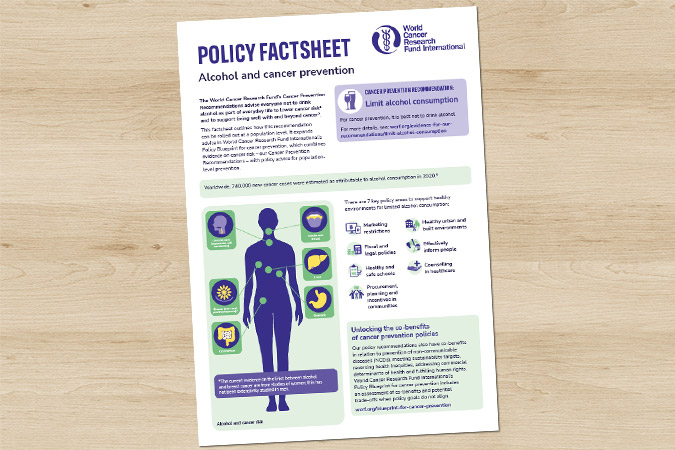
The Blueprint is accompanied by factsheets on specific cancer risk factors.
Our policy blueprint makes the case for population-level policy action and focuses on 5 factors: diet, weight, breastfeeding, physical activity and alcohol – in line with our Cancer Prevention Recommendations. We also look at how these factors can support people living with and beyond cancer
Our blueprint is an essential, evidence-based guide for policymakers and advocates, pulling together tools and resources to provide a comprehensive resource on cancer prevention. It pulls together existing tools and resources to support efforts on cancer prevention, including key guidance for World Health Organization, but also our existing NOURISHING nutrition and MOVING physical activity policy frameworks. All this information is distilled in a package of resources:
- An outline of 8 policy areas – including marketing restrictions, fiscal and legal, procurement, planning and incentives in communities– and how they apply to diet, weight, breastfeeding and physical activity.
- 10 factsheets with in-depth technical detail on how to roll out each Recommendation at population level.
- An exploration of the co-benefits of cancer prevention policy: addressing health inequities; meeting climate and sustainability targets; addressing commercial determinants of health; and fulfilling human rights.
- 7 strategies to help policymakers take action.
The goal of these resources is to strengthen understanding of how environment shapes cancer risk, and what policymakers can do about it.
How it was developed
To develop these resources, we built on our policy work, we reviewed existing key policy documents, and asked experts in the science and policy of cancer prevention, as well as lawyers, advocates for non-communicable disease prevention or breastfeeding what is most important in their respective areas. We then brought all the main elements together.
What’s next?
The Policy blueprint for cancer prevention will now be a centrepiece of our conversations with policymakers going forward – from Member States at the World Health Organization to the UN High-Level Meeting on Non-communicable diseases.
We invite you all to get involved: download the blueprint, share it, and use it in your work.
> Download our factsheets and other policy tools in our resource library
> To give us feedback and share how you want to use the blueprint, write to policy@wcrf.org
